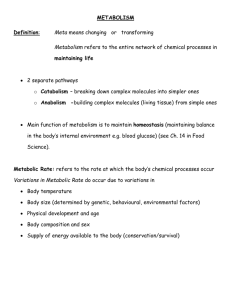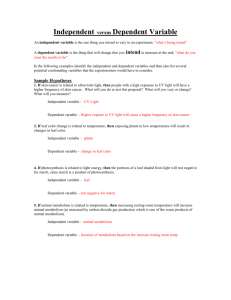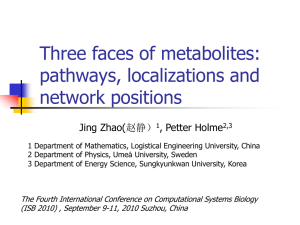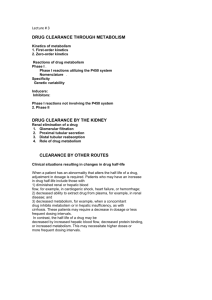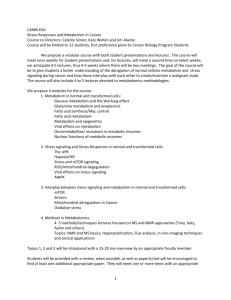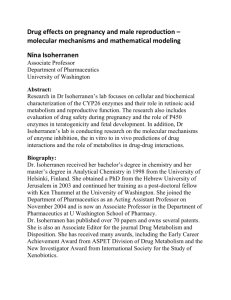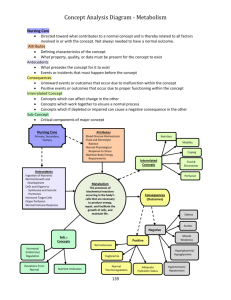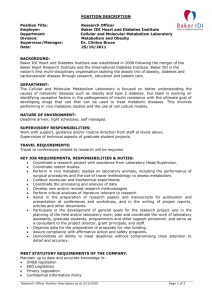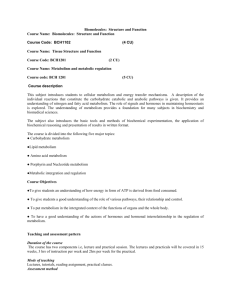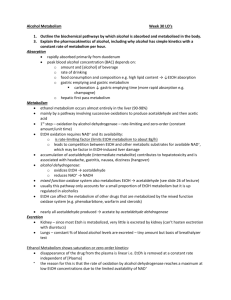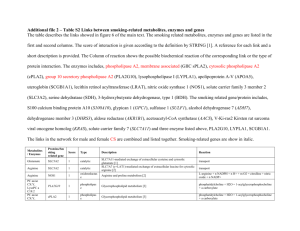METABOLISM
advertisement
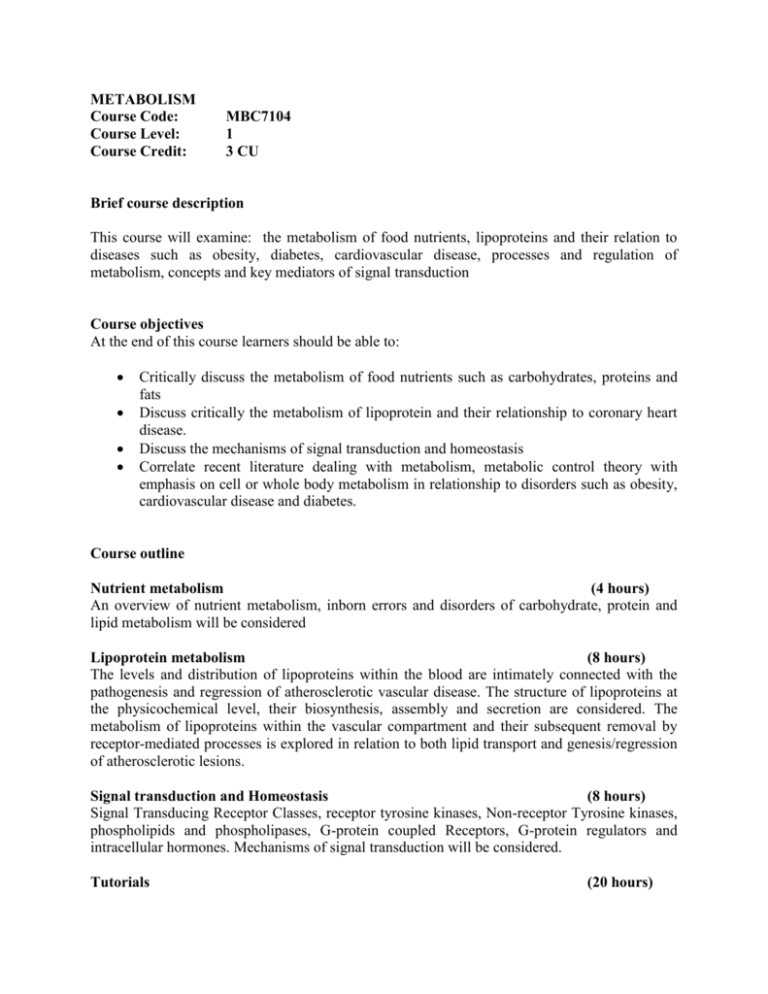
METABOLISM Course Code: Course Level: Course Credit: MBC7104 1 3 CU Brief course description This course will examine: the metabolism of food nutrients, lipoproteins and their relation to diseases such as obesity, diabetes, cardiovascular disease, processes and regulation of metabolism, concepts and key mediators of signal transduction Course objectives At the end of this course learners should be able to: Critically discuss the metabolism of food nutrients such as carbohydrates, proteins and fats Discuss critically the metabolism of lipoprotein and their relationship to coronary heart disease. Discuss the mechanisms of signal transduction and homeostasis Correlate recent literature dealing with metabolism, metabolic control theory with emphasis on cell or whole body metabolism in relationship to disorders such as obesity, cardiovascular disease and diabetes. Course outline Nutrient metabolism (4 hours) An overview of nutrient metabolism, inborn errors and disorders of carbohydrate, protein and lipid metabolism will be considered Lipoprotein metabolism (8 hours) The levels and distribution of lipoproteins within the blood are intimately connected with the pathogenesis and regression of atherosclerotic vascular disease. The structure of lipoproteins at the physicochemical level, their biosynthesis, assembly and secretion are considered. The metabolism of lipoproteins within the vascular compartment and their subsequent removal by receptor-mediated processes is explored in relation to both lipid transport and genesis/regression of atherosclerotic lesions. Signal transduction and Homeostasis (8 hours) Signal Transducing Receptor Classes, receptor tyrosine kinases, Non-receptor Tyrosine kinases, phospholipids and phospholipases, G-protein coupled Receptors, G-protein regulators and intracellular hormones. Mechanisms of signal transduction will be considered. Tutorials (20 hours) Practical (30 hours) Mode of delivery This course will be taught using Lectures, Assignments and practicals Assessment Assignments reports, tests, practical reports and end of module examination. Their relative contribution to the final grade is shown below: Requirement Progressive (Practicals and assignments) Test Final Examination Total Contribution 20% 20% 60% 100% Reading list 1. J.G Salway (1999) Metabolism at a glance, 2nd edtion, 2. Frayn K.N and Keith N (1996) Metabolic regulation: a human perspective. 3. Marshell William and Stephen K Bangert (1995) Clinical Biochemistry: Metabolic and clinical aspects. 4. Charles Scrivener (1995) Metabolic basis of inherited disease volume 1-3, 7th edition.
